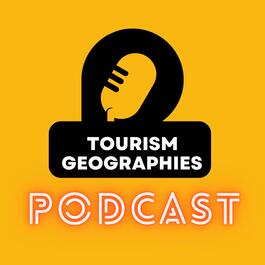
Tourism Geographies Podcast
This podcast discusses recent research published in Tourism Geographies: An International Journal of Tourism Space, Place and Environment. We talk with authors about their research contributions to share the why and how of their research. Hosted on Acast. See acast.com/privacy for more information.
Show episodes

From project to venture: facilitating engagement and entrepreneurship in rural tourism
https://doi.org/10.1080/14616688.2025.2519331Abstract Projects are a standard strategy for rural tourism development. This study builds on the premise that sustainable rural tourism is conditioned by the involvement of key stakeholders and entrepreneurs’ ability to creatively and responsibly utilise local resources for
https://doi.org/10.1080/14616688.2025.2504039 Abstract Airbnb research has focused primarily on a small number of Western countries. This study examines Airbnb and its hosts in a destination in the Global South—Bocas del Toro, Panama. Through an exploration of the nexus between Airbnb hosting and lifestyle migration, t

Crafting destination stories: enacting and sharing cultural memory for Indigenous tourism
https://doi.org/10.1080/14616688.2025.2495175Abstract Cultural memory, which shapes a collective understanding of historical experiences and influences identity, is crucial in the Indigenous context but has been understudied in tourism. This study examines the role of the Guthi system, a cultural space of Indigenous Ne
https://www.tandfonline.com/doi/full/10.1080/14616688.2025.2525815Abstract The commercial spaceflight industry is progressing rapidly. Yet, there is a lack of research theorising what the spatio-temporal contours of sustainability look like if the biosphere, along with its finite resources and limited ability to sustai

The tourism-migration nexus: working holiday visa politics and repurposing tourists as labour
https://www.tandfonline.com/doi/full/10.1080/14616688.2025.2506523?src=Abstract The ‘working holiday’ model of youth mobility has evolved alongside backpacking in recent decades. Increasingly, backpackers on working holidays are seen as a potential labour source in many nations, due to the flexible and highly mobile ca
https://www.tandfonline.com/doi/full/10.1080/14616688.2025.2516837Abstract This paper examines the political geography of land use management in developed western economies. It explains why tourism stakeholders continue to struggle to gain legitimacy in many protected area management decisions. The reason is that the p